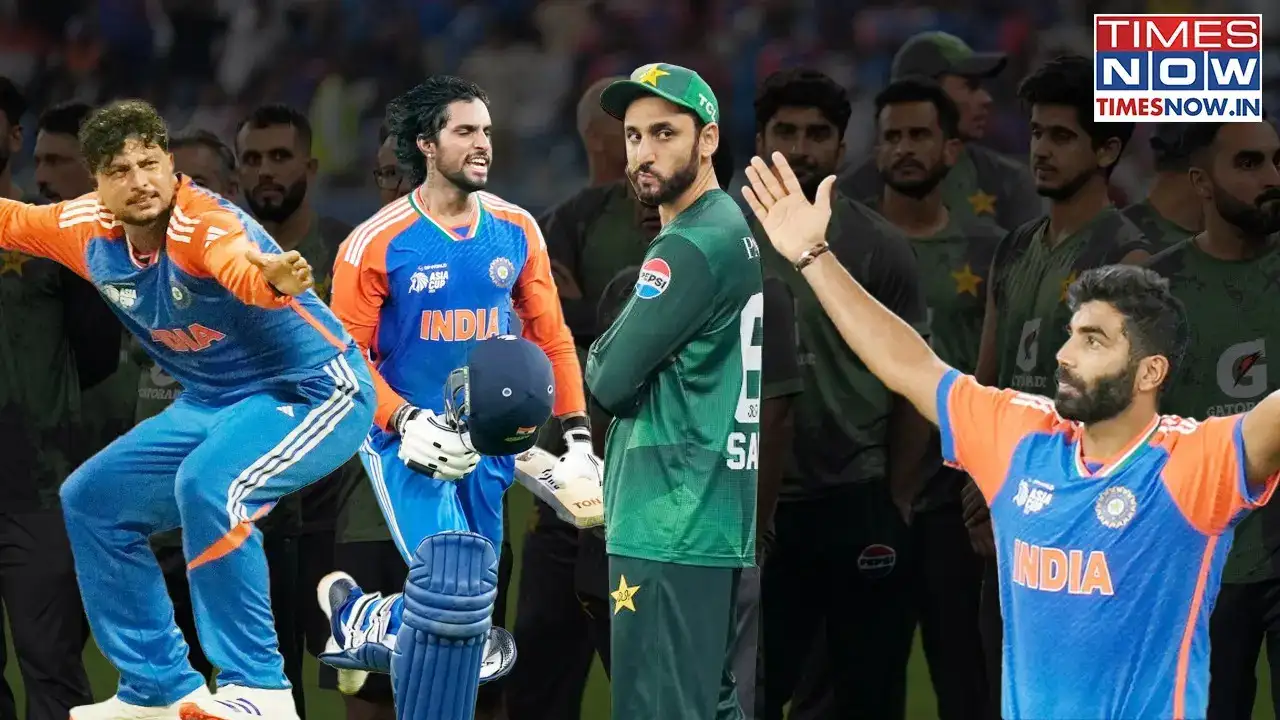By Sudipta Biswas
Copyright timesnownews

A victory over Pakistan always tastes sweet—intensified by decades of acrimony, historical tensions, and a shared border rife with disputes. This Asia Cup, however, the stakes were layered even further, played out against the haunting shadow of the heinous Pahalgam terror attack and India’s subsequent counter-terrorism operation in Pakistan. While the skirmish on the border has ended, the rhetoric has not—and it has reignited the fire. The tinderbox was already alight. This Asia Cup delivered an unforgettable story, marked by controversies that often overshadowed the skill and brilliance of the cricketers on the field. A refused handshake by India captain Suryakumar Yadav, Sahibzada Farhan’s provocative mocking gun salute at half-century, and Haris Rauf’s jet going down gesture to Indian fans fanned the flames of a rivalry that has historically thrived on tension both on and off the field. But when the final scores were tallied, the scoreboard told a story of unmistakable dominance: India 3, Pakistan 0. In a mini-series within the Asia Cup, India bossed Pakistan, securing their fifth consecutive win over their arch-rivals in T20I cricket and eighth in a row in international cricket. Shadow of the past Pakistan faltered timidly to India—losing the first match by 7 wickets, the Super Four encounter by 6 wickets, and eventually lost by 5 wickets in the final. It was a stark testament to the widening chasm between Indian and Pakistan cricket—showcasing just how far Indian cricket has surged ahead, and how Pakistan, once brimming with flair and charisma, now struggle to find their footing and commanding presence on the field. For a team that once struck fear in the minds of batsmen, boasting legendary bowlers like Wasim Akram, Waqar Younis, and Shoaib Akhtar, this iteration of Pakistan seemed surprisingly meek, leaving the storied rivalry reduced to a lopsided contest. The spectacle of India-Pakistan cricket against the tense backdrop of the 1999 Kargil War remains etched in memory. Who could forget Venkatesh Prasad dismantling Pakistan’s formidable batting line-up comprising Saeed Anwar, Saleem Malik, and Inzamam-ul-Haq in the 1999 World Cup? Or Shoaib Akhtar’s sheer pace leaving India stunned at Eden Gardens later that same year? And then there was Sachin Tendulkar, under immense pressure in the 2003 World Cup, threading an audacious upper cut off Akhtar’s fearsome bouncer and more recently Virat Kohli’s last-over heroic in 2022 T20 World Cup – moments that still send shivers down fans’ spines. Those moments were defined by tension, skill, and drama. Today, they feel almost mythic, contrasted starkly by the one-sidedness of the present-day rivalry. Mental pressure, once a decisive factor in India-Pakistan cricket, resurfaced vividly on Sunday. When Pakistan made a blistering start at 84 for 1, it seemed it was still a good rivalry. But that it was only an illusion became evident only a few overs later, as Pakistan could not soak the pressure and crumbled to 146, struggling against Indian spinners Varun Chakravarthy, Axar Patel, and Kuldeep Yadav – their wrecker in chief throughout the tournament. With no depth in the middle order and lacking batters with the credentials to anchor the innings and rotate the strike, Pakistan collapsed, losing their last eight wickets for just 32 runs. Bringing in Dr. Raheel Karim, a psychiatrist and sports psychologist, midway through the tournament failed to make any difference. In sharp contrast, India bounced back after once reeling at 20 for 3 with composure and fearlessness. Their approach was bold, calculated, and utterly unflappable, dogged by years of playing IPL – antithetical to Pakistan’s nervy, risk-averse temperament. Tilak Varma’s measured 69 off 53 balls and Shivam Dubey’s match-winning 33 off 22 were a leaf out of that book. They dug deep and moulded the Indian innings. Undeterred by Haris Rauf’s relentless sledging—’Yeh Mumbai ya IPL nahi hai’ (This is not Mumbai or IPL) —Tilak let his bat do the talking and demonstrated why his experience in pressure-cooker IPL matches mattered on the big occasion. When the do-or-die moment came, with India needing 17 off 10 balls, he rose to the occasion, launching a calming six. Rinku Singh followed suit with a winning four, completing India’s triumphant ninth Asia Cup victory. Tilak’s jubilant sprint across the ground, embraced by the entire team, symbolised more than just a win—it was a declaration of India’s growing supremacy and a display of the less tangible, yet more powerful, confidence not just in cricketing skill but in this high-profile rivalry. For Pakistan, despite all their theatrics, they simply could not match India’s heroics on the field. In the previous matches, their bowlers were left reeling, ripped apart ball after ball by Abhishek Sharma’s relentless, stroke-filled assault. Disgrace The story of India-Pakistan cricket, once a theatre of respect, tension, and unforgettable clashes, now risks losing its shine. India left the field as a trophy-champions, while Pakistan captain Salman Ali Agha, powerless at the crease, let his frustration show by discarding his runners-up cheque—a stark symbol of a rivalry in transition. The episode involving Mohsin Naqvi, chairman of the Asian Cricket Council (ACC), and Pakistan Cricket Board (PCB) withholding the trophy – removing it from the presentation ceremony – from the Suryakumar Yadav-led Indian side, only served to leave the rivalry with a bitter aftertaste. Naqvi arrogated the right to award the trophy solely to himself, refusing to share it with anyone after Yadav declined to accept it from him. In the larger scheme of subcontinental cricketing dynamics, this Asia Cup reinforced an uncomfortable truth: what was once a spectacle defined by uncertainty, intensity, and edge-of-the-seat drama has, for now, become a decidedly one-sided story. India’s dominance is undeniable—but it comes at the cost of a rivalry that was once among the most celebrated in the cricketing world.



